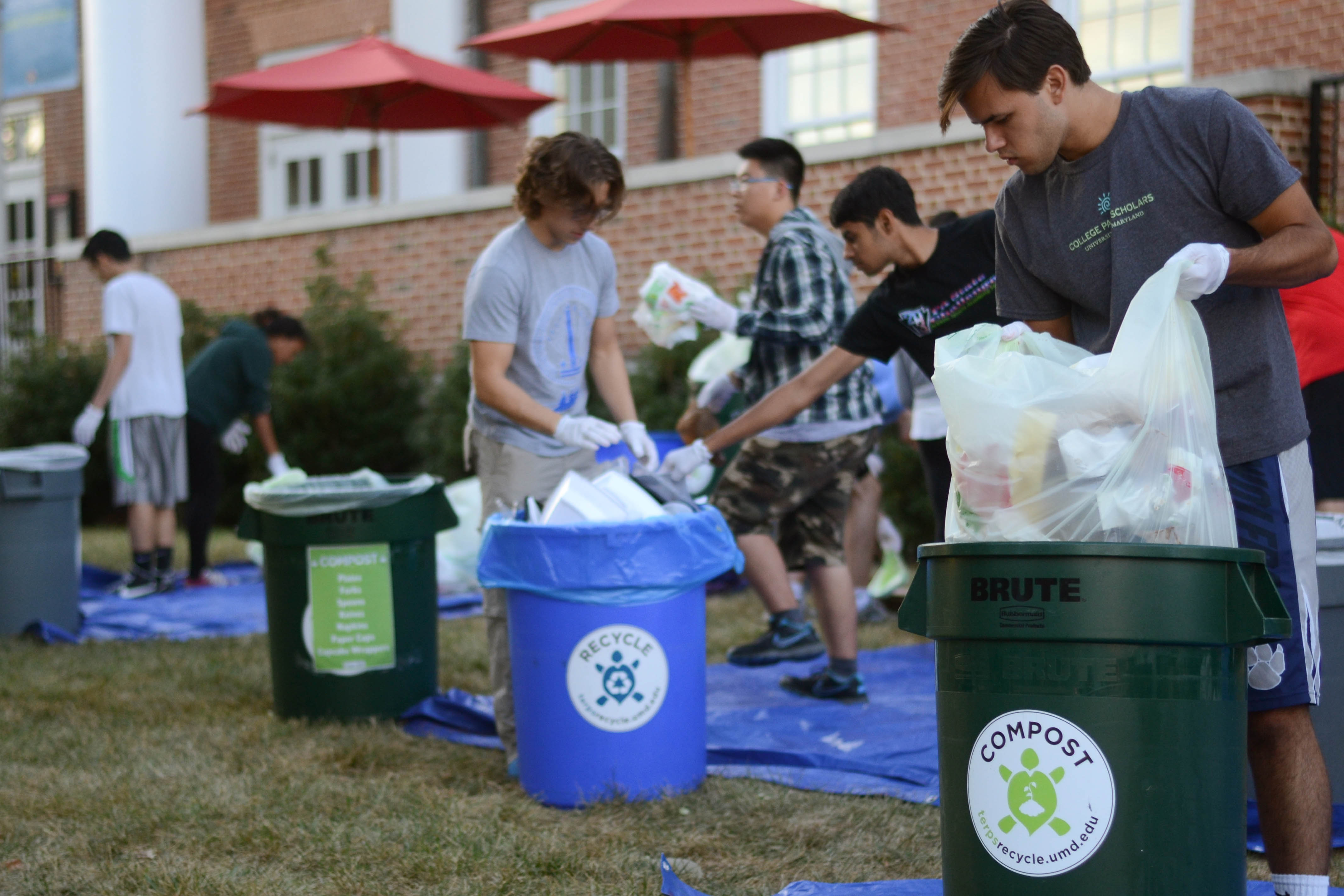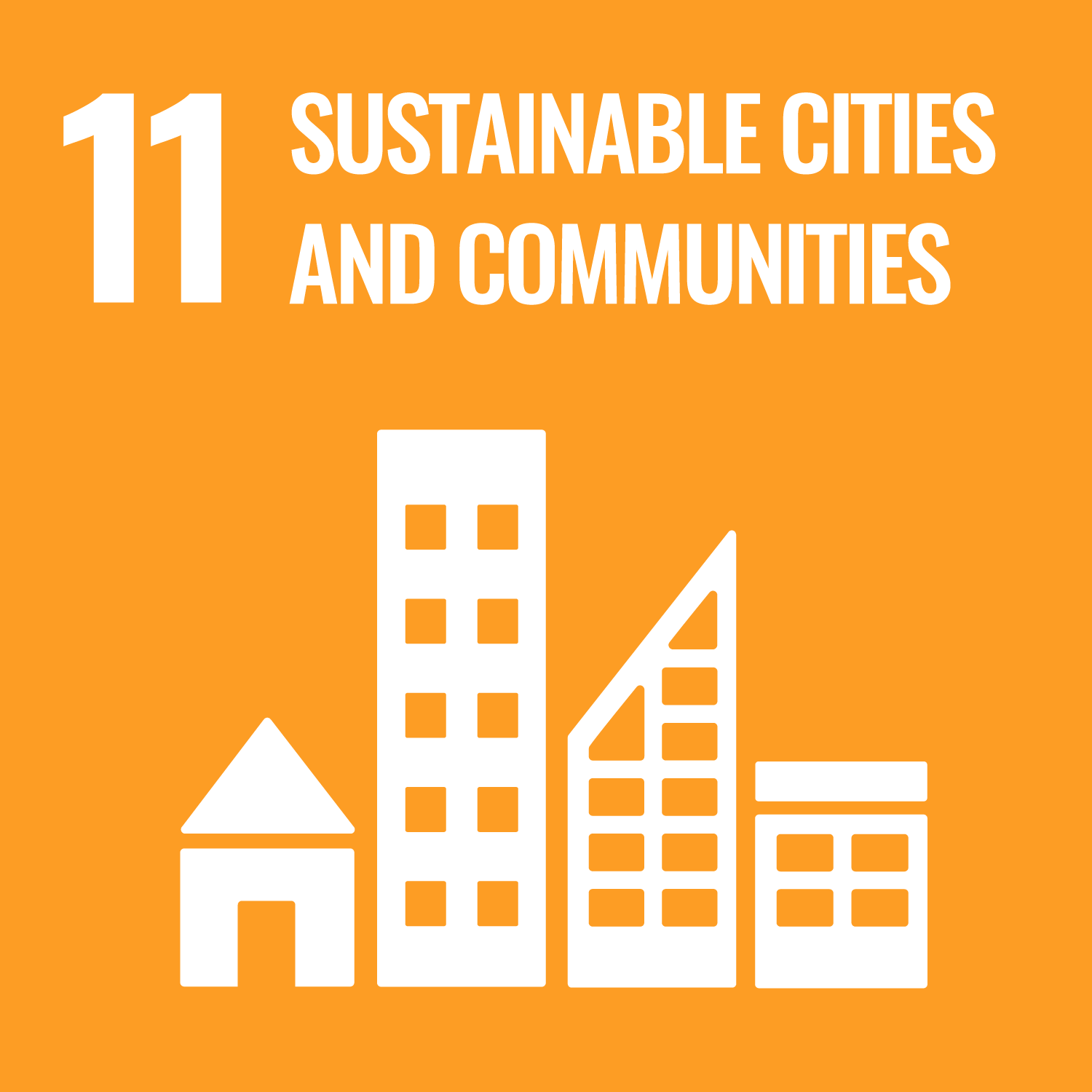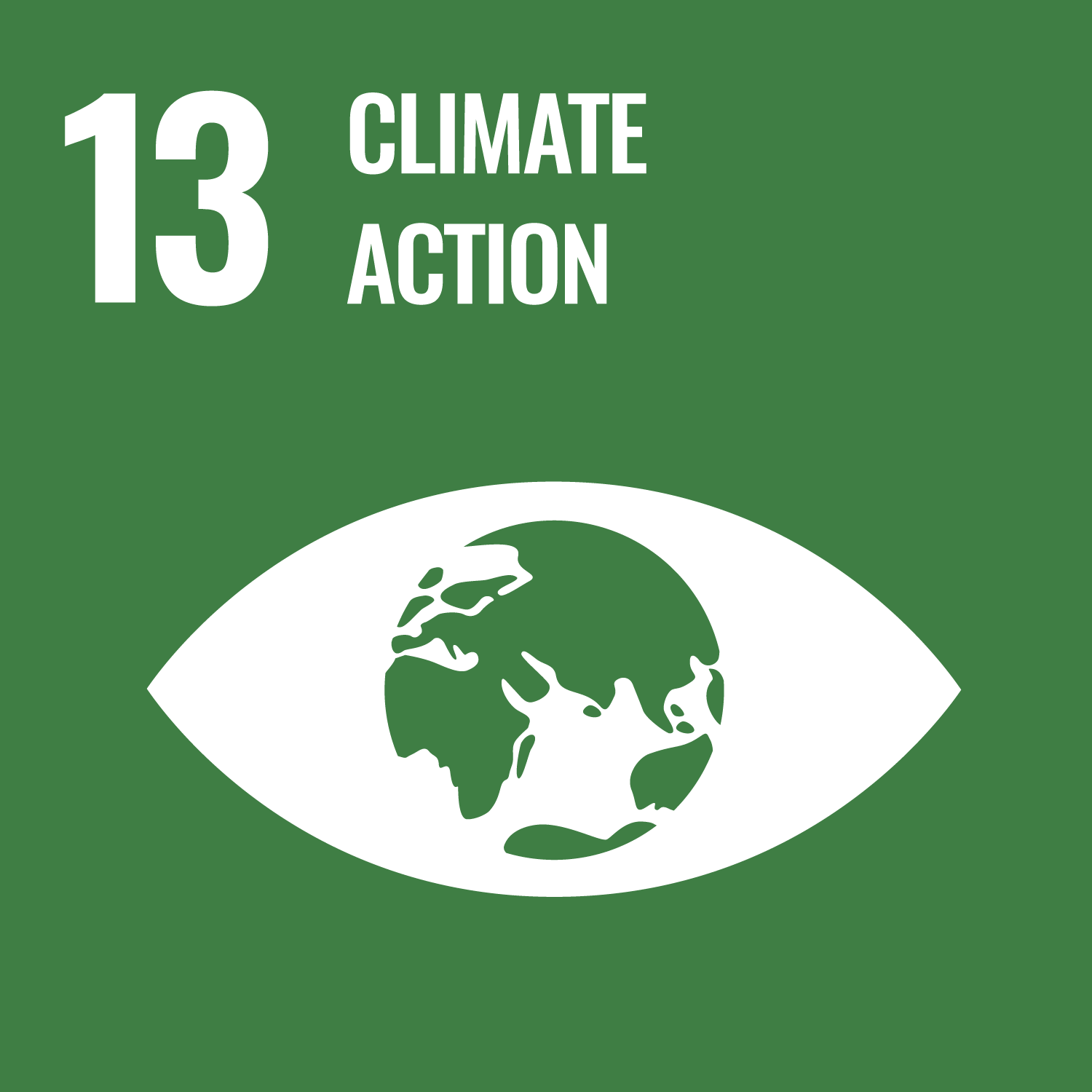All levels of action, raining from campus policies to individual habits, are integral to UMD's journey to cut waste. From changes in the global recycling system to demand for disposables rising in response to COVID-19, new challenges keep arising in the campus efforts to reduce, reuse, recycle, compost and more. Despite the obstacles, UMD's departments have achieved major improvements in reducing waste and improving recycling, composting, and reuse systems. While tackling waste sources and systems is an ongoing process, each of us can contribute to progress towards much needed change.
Reduce:
Efforts are being made to reduce food waste and single use plastic packaging from campus eateries. To reduce food waste, Dining Services donates surplus food to the Campus Pantry or Food Recovery Network, and encourages students to rethink the amount of food they waste from their plates through educational messaging and student-led food waste audits. Starting in 2018, Dining Services’ cafes and shops made the switch from disposable plastic utensils and straws to compostable. They also provided students with reusable bags through the Ocean Friendly Campus Initiative. While Dining Halls had switched to reusable plates and utensils in 2016, eliminating 6.3 million disposable items from the university’s waste stream annually, this had to be placed on hold during the COVID-19 Pandemic. Compostable containers temporarily took the place of the reusable items to accommodate the challenges and risks of the time.
In 2010 the need for thousands of disposable plastic liners for trash bins were eliminated by Facilities Managements' Can the Can program, where office workers received personal 'mini bins' to empty into a centralized location, encouraging awareness of the amount of waste each individual creates.
Reuse:
Facilities Management has installed over a hundred water bottle filling stations in buildings across campus, and individuals at UMD have eliminated an estimated 6 million disposable plastic water bottles since 2013 by choosing to use these stations with reusable bottles.
Resident Life launched Trash to Treasure to encourage donations of reusable items while students move out of campus housing. Before this program, students moving often resorted to leaving anything that couldn't fit into their vehicle at dumpsters or worse, strewn about as litter. Now, donation collection sites across Residence Halls offer students a way to easily give unwanted items a new life. In spring of 2019, the program collected 12,783 pounds of items for reuse, and thus diverted this collected waste from the landfill.
Terrapin Trader is a campus surplus property operation. The storefront facilitates the sale of everything from vehicles to office equipment. UMD helps students reuse by cleaning and repurposing containers from Dining Services that once held ice cream, yogurt, and sour cream, and converting them into recycling and compost bins. Through the Green Terp Program students receive reusable straws or utensil sets to reduce their waste as well.
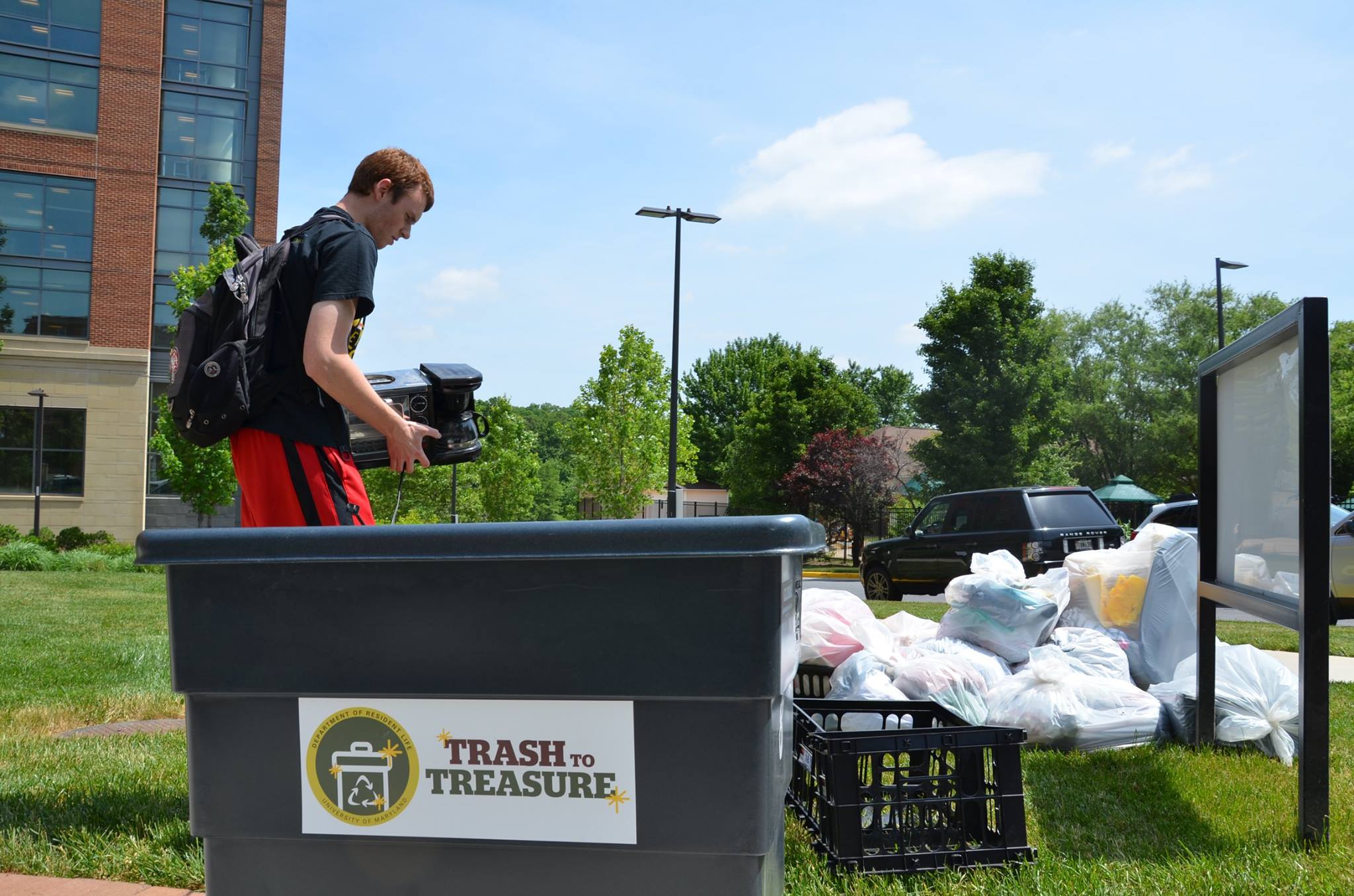
Recycle:
UMD has been recycling for the past four decades. Now, recycling is collected inside all campus buildings, and recycling bins are paired next to waste bins with informational signage to make sorting as simple as possible.
The campus began collecting glass separately in 2020 to adjust to changes in the regional recycling process. Annually, the campus celebrates events like America Recycles Day, and has participated in the annual Campus Race to Zero Waste competition (formerly Recyclemania) since its inception in 2004. In 2020, UMD placed #1 within the Big Ten and participating Maryland campuses. At the Maryland Stadium, the Drive to Zero Waste program enables thousands of fans to recycle and compost at games.
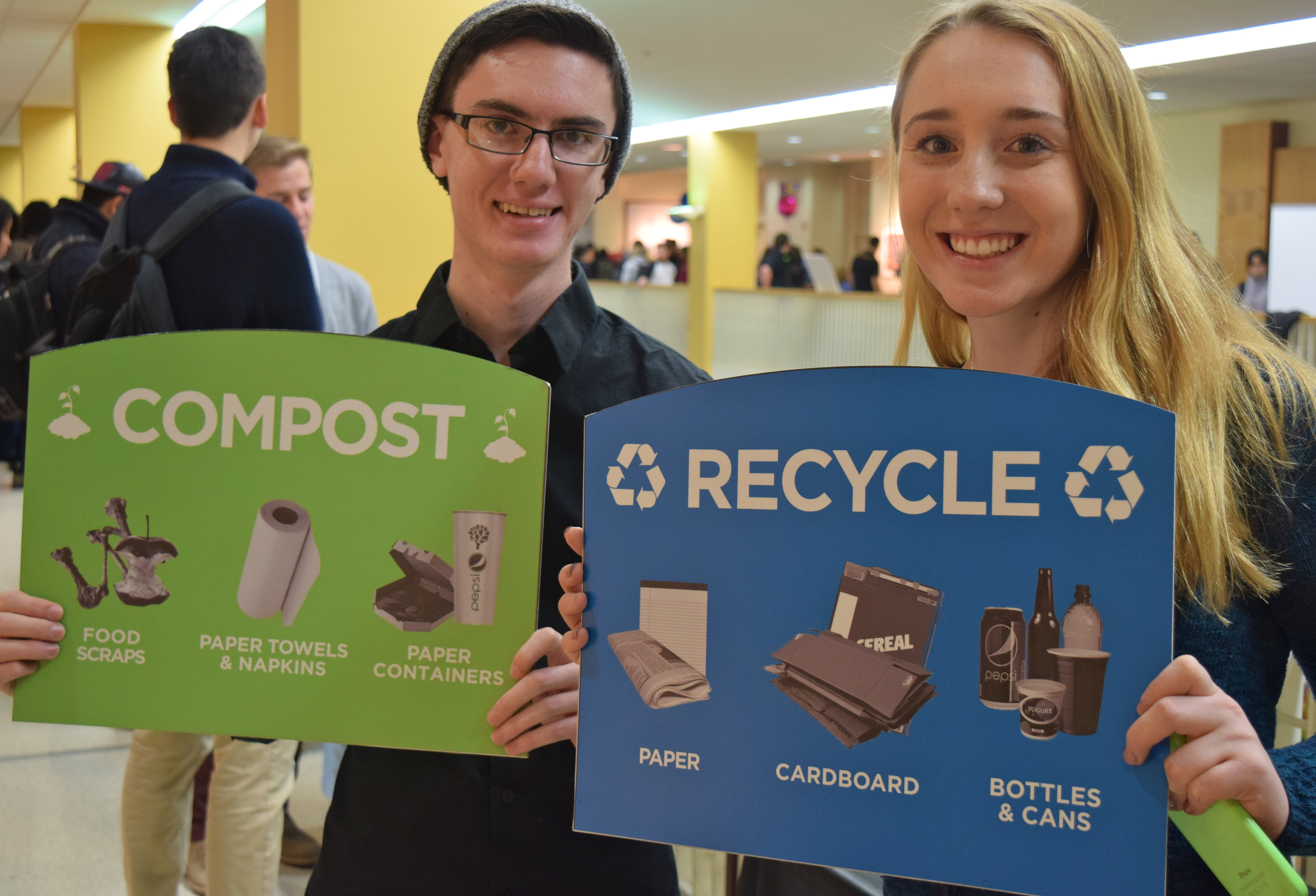
Compost:
UMD started composting behind the scenes, with food scraps from the kitchens of the dining halls. In 2011, the Stamp Student Union took on the challenge of educating the campus community to sort compost, and prevent contamination, by placing compost bins in the food court. UMD has since added compost bins and collection services to many academic buildings and residence halls.
Now even select outdoor events and the stadium include compost collection. Only biodegradable items like food scraps, paper towels, and special compostable packaging can be composted into fertilizer and soil.
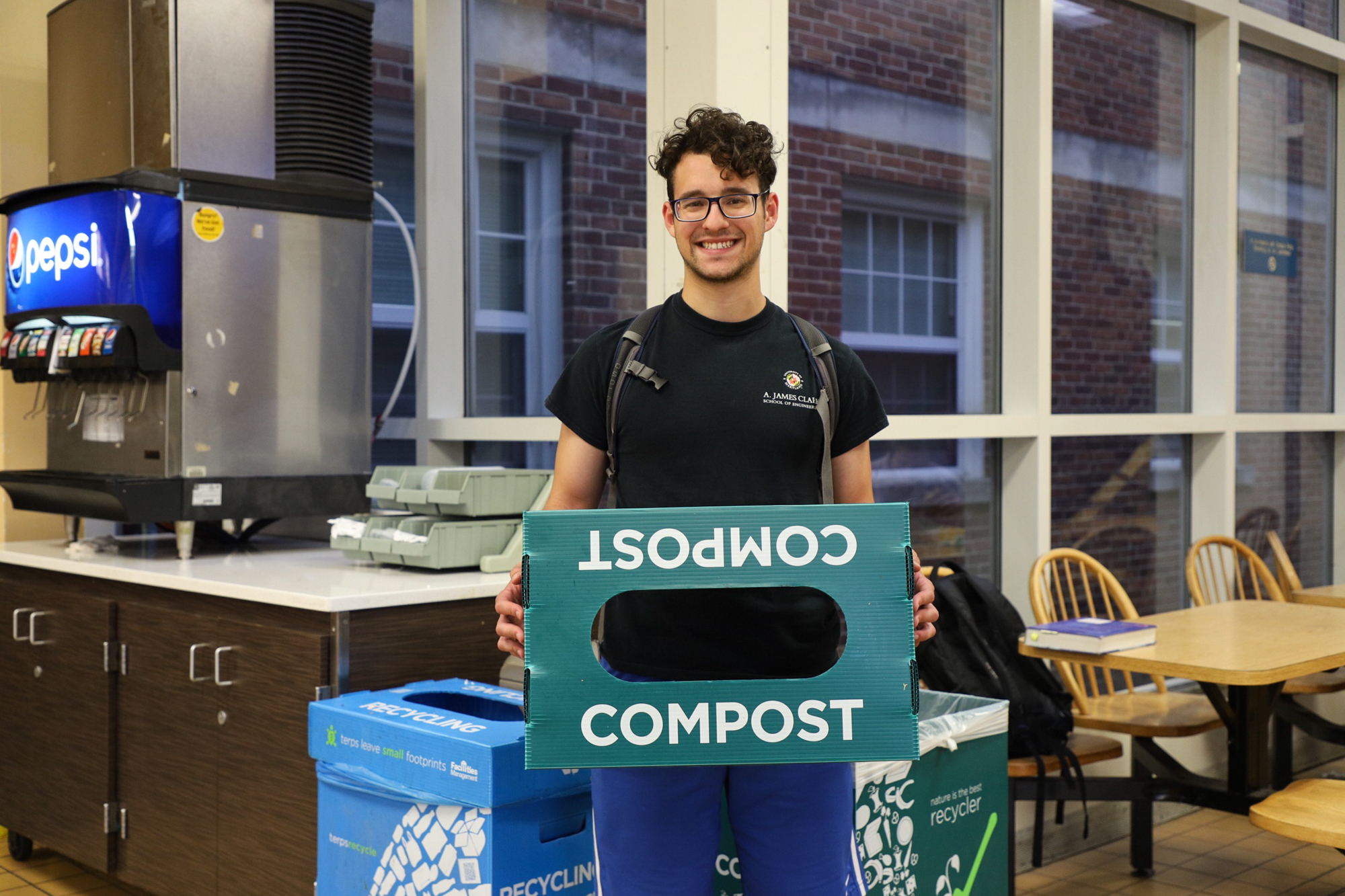
More:
The Green Office, Green Terp and Green Chapter programs were developed and facilitated by the Office of Sustainability in order to give students, faculty and staff support, training, and certification for adopting sustainable practices in daily life.
UMD's Arboretum organizes litter clean ups across campus, and are always looking for volunteers. UMD Facilities Management continually works to improve the waste collection system, and even conducts waste audits to better understand how much of our waste could have been recycled or composted.
Student Groups such as the SGA Sustainability Committees, Sustainable Oceans Alliance, MaryPIRG, and more have advocated for these and more sustainable practices on our campus, and they continue to encourage students and administration alike to push progress forward.
